
Annual Review of Anthropology
Scope & Guideline
Advancing Knowledge in Anthropology
Introduction
Aims and Scopes
- Linguistic and Cultural Anthropology:
Focuses on the study of language as a cultural tool, examining how linguistic practices shape social identities, power dynamics, and cultural narratives. - Political and Economic Anthropology:
Explores the intersections of politics, economy, and culture, investigating how these dimensions influence human behavior, social structures, and global interactions. - Bioanthropology and Human Ecology:
Addresses the biological aspects of human beings, including health, nutrition, and evolutionary processes, often integrating ecological perspectives. - Archaeology and Material Culture:
Examines past human societies through their material remains, offering insights into historical processes, cultural practices, and social organization. - Decolonization and Social Justice:
Engages with themes of colonialism, race, and identity, aiming to deconstruct traditional narratives and promote social justice within anthropological discourse. - Interdisciplinary Approaches:
Encourages the integration of methods and theories from other disciplines, fostering innovative research that addresses contemporary issues.
Trending and Emerging
- Health and Disease in Anthropology:
An increased emphasis on the anthropological dimensions of health, particularly in the context of global health crises like the COVID-19 pandemic, underscores the relevance of anthropology in understanding human biology and social health. - Decolonization and Indigenous Perspectives:
A growing trend towards decolonizing methodologies and recognizing Indigenous voices and epistemologies reflects a critical engagement with historical injustices and the need for inclusive scholarship. - Political Ecology and Environmental Anthropology:
The intersection of environmental issues with social justice and political economy is increasingly prominent, highlighting the role of anthropology in addressing climate change and ecological crises. - Digital Anthropology and New Media:
Research exploring the impact of digital technologies on culture, identity, and communication is gaining traction, emphasizing the relevance of anthropology in the digital age. - Critical Race Theory in Anthropology:
The integration of race and racism into anthropological discourse is becoming more pronounced, reflecting a broader societal movement towards understanding systemic inequalities.
Declining or Waning
- Traditional Ethnography:
The focus on classical ethnographic methods seems to be waning as scholars increasingly adopt interdisciplinary and mixed-method approaches that incorporate quantitative data and broader theoretical frameworks. - Purely Descriptive Studies:
There is a noticeable reduction in the publication of studies that primarily describe cultural practices without engaging in critical analysis or theoretical contributions. - Conventional Archaeological Methods:
As newer methodologies such as digital archaeology and remote sensing gain traction, traditional archaeological techniques may be receiving less attention in contemporary research. - Anthropology of Non-Human Primates:
Interest in this subfield appears to be declining, possibly due to the increasing focus on human-centered studies and the complexities of human-animal relationships.
Similar Journals

ZEITSCHRIFT FUR ETHNOLOGIE - Journal of Social and Cultural Anthropology
Innovating Anthropological Perspectives for a Global AudienceZEITSCHRIFT FUR ETHNOLOGIE - Journal of Social and Cultural Anthropology, published by DIETRICH REIMER VERLAG, serves as a vital platform for the dissemination of high-quality research in the fields of social and cultural anthropology. Established with a commitment to advancing scholarly dialogue, this journal captures the dynamic interplay of cultural practices and social structures across diverse contexts. With an ISSN of 0044-2666, it gained significant traction among researchers, ranking in Q3 for Cultural Studies and Q4 for miscellaneous Social Sciences in 2023. Its Scopus ranking reflects its growing impact, particularly within the 68th percentile of Cultural Studies. Although the journal does not offer open access, it remains a crucial resource for academia, fostering critical insights and innovative analyses essential for students, professionals, and scholars alike. With a publication history highlighted by a convergence of issues from 1981 and various intervals, the journal is poised to shape debates in anthropological research both locally within Germany and globally.

Open Library of Humanities
Empowering Voices in Anthropology, Arts, and CultureThe Open Library of Humanities, a premier platform established in 2015 and based in the United Kingdom, elevates the discourse in the fields of Anthropology, Arts and Humanities, Cultural Studies, and Sociology and Political Science. Published by OPEN LIBRARY OF HUMANITIES, this open access journal provides a prominently accessible space for scholars and researchers to disseminate their findings and contribute to a diverse range of academic conversations. With an impressive Scopus ranking that reflects its influence—ranking in the 87th percentile in General Arts and Humanities and in the 80th percentile for Cultural Studies—the journal is recognized for publishing high-quality research that addresses significant and contemporary issues within its scope. By embracing a multidisciplinary approach, the Open Library of Humanities fosters interdisciplinary dialogue and encourages innovative research dissemination practices. Scholars, students, and practitioners are invited to engage with the latest developments and theoretical insights that enrich our understanding of the human experience.
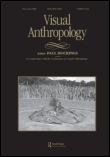
Visual Anthropology
Bridging Anthropology and Visual MediaVisual Anthropology is a distinguished journal published by Routledge Journals, Taylor & Francis Ltd in the United Kingdom. With an ISSN of 0894-9468 and E-ISSN 1545-5920, this journal focuses on the intersection of visual media and anthropological research, exploring the ways in which visual representations influence cultural practices and perceptions. Since its inception in 1987, Visual Anthropology has contributed significantly to the fields of Anthropology and Cultural Studies, earning a Q2 rank in both categories as of 2023. With a solid impact factor and strategic indexing, the journal maintains a vital place for scholars seeking to understand the visual dimensions of human behavior and societal structures. Although it operates under a traditional subscription model, its rigorous peer-review process ensures the dissemination of high-quality research. The journal invites researchers, professionals, and students alike to engage with cutting-edge studies that bridge visual culture and anthropological inquiry.

CURRENT ANTHROPOLOGY
Shaping the Future of Anthropological InquiryCURRENT ANTHROPOLOGY, published by the esteemed University of Chicago Press, stands as a premier journal in the fields of anthropology and archaeology, with an impressive impact factor that signifies its relevance and authority in the academic community. With both print (ISSN: 0011-3204) and digital formats (E-ISSN: 1537-5382), this journal provides a platform for groundbreaking research, theoretical advancements, and critical discussions that shape our understanding of human cultures and societies. Since its inception in 1962, CURRENT ANTHROPOLOGY has continually pushed the boundaries of knowledge and inquiry, earning a prestigious Q1 ranking in 2023 across multiple categories, including Social Sciences and Archaeology. Researchers and professionals alike rely on this journal not only for its rigorous peer-reviewed articles but also for its commitment to interdisciplinary approaches and innovative methodologies. While not currently offering open access, CURRENT ANTHROPOLOGY remains an essential resource for students and scholars eager to stay abreast of the latest developments in anthropological research.

Anthropology of Work Review
Examining the Dynamics of Work Across CulturesAnthropology of Work Review is a prestigious academic journal published by WILEY, dedicated to the exploration of the intricate relationships between work and culture. With its ISSN 0883-024X and E-ISSN 1548-1417, this journal has established itself as a leading voice in the field, achieving a remarkable Q1 ranking in Anthropology for 2023 and positioning itself favorably at #136 out of 502 in Scopus rankings within the Social Sciences category. Since its inception in 1980, the journal has continued to publish innovative research that examines the anthropological dimensions of work across diverse contexts and cultures. Although it does not currently offer open access, the journal remains a vital resource for researchers, professionals, and students interested in the latest findings and discussions within the anthropology of work. The journal’s commitment to fostering a deeper understanding of how work shapes and is shaped by human society makes it an invaluable asset for anyone engaged in anthropology and related disciplines.

Chungara-Revista de Antropologia Chilena
Celebrating the Heritage of Chile through ResearchChungara-Revista de Antropologia Chilena is a premier academic journal dedicated to the field of anthropology, showcasing research and discourse that emphasize the rich cultural heritage of Chile and its surrounding regions. Published by UNIV TARAPACA, this journal serves as a vital platform for scholars, researchers, and students keen on exploring anthropological studies, ethnographic fieldwork, and cultural analysis. With an ISSN of 0717-7356, it adheres to rigorous academic standards and strives to promote open dialogue on contemporary and historical issues across various communities. Although currently not indexed in prominent metrics, its commitment to scholarly excellence contributes significantly to the academic landscape, fostering a deeper understanding of anthropological practices in Chile and beyond. Authors are encouraged to engage with the journal's rich repository of knowledge while readers gain access to pivotal insights that drive forward the discourse within anthropology.
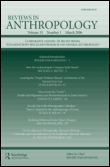
Reviews in Anthropology
Connecting Scholars, Cultures, and IdeasReviews in Anthropology, published by Routledge Journals, Taylor & Francis Ltd, is a vital academic journal for scholars and practitioners in the fields of anthropology and cultural studies. With a history extending from 1974 to 2024, this journal reflects the evolving discourse within the social sciences, offering a collection of insightful reviews and critiques that shape contemporary anthropological thought. Although it operates under a non-open access model, its impact is underscored by its positioning in the Q3 quartile for both Anthropology and Cultural Studies, as well as respectable Scopus rankings. This journal serves as a platform for disseminating influential research, fostering academic dialogue, and enhancing understanding of diverse cultures and societies. Its robust editorial board and commitment to quality scholarship make it an essential resource for researchers, professionals, and students looking to deepen their knowledge and contribute to the ever-changing landscape of anthropology.
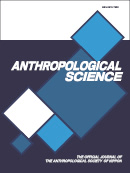
ANTHROPOLOGICAL SCIENCE
Connecting theory and practice in the heart of anthropological research.ANTHROPOLOGICAL SCIENCE is a prominent journal in the field of anthropology, published by the Anthropological Society of Nippon since 1993. With a rich pedigree of scholarly contributions, this journal is an essential platform for disseminating research findings and theoretical discussions that push the boundaries of anthropological knowledge. Currently ranked in the Q3 category in Anthropology by 2023 metrics, ANTHROPOLOGICAL SCIENCE boasts an impressive position at #163 out of 502 in Scopus, placing it in the 67th percentile among its peers. While it operates under a traditional access model, the journal supports a diverse range of anthropological research encompassing cultural, biological, and archaeological perspectives. Researchers, professionals, and students will find valuable insights and innovative methodologies that foster a richer understanding of human societies and behaviors. The current trends and findings published in this journal make it a crucial resource for those involved in anthropological studies or related fields.
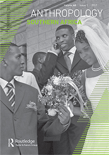
Anthropology Southern Africa
Illuminating the complexities of cultural phenomena in Southern Africa.Anthropology Southern Africa is a prestigious journal published by Routledge Journals, Taylor & Francis Ltd, and is dedicated to advancing the field of anthropology through rigorous scholarship and critical discourse. Established in 2013 and converging through 2024, this journal sets a high standard in its category, currently holding a Q2 classification in Anthropology and a Q1 ranking in Cultural Studies for the year 2023, ensuring its position as a significant contributor to social science research. With a robust Scopus ranking that places it in the 82nd percentile for Cultural Studies and the 67th percentile for Anthropology, Anthropology Southern Africa serves as an essential platform for researchers, professionals, and students engaged in anthropological inquiry and cultural analysis. Although it is not openly accessible, the publication prides itself on high-quality submissions that explore diverse cultural phenomena and anthropological perspectives, thereby inviting interdisciplinary engagement and fostering a global academic dialogue.
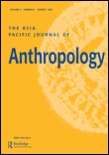
Asia Pacific Journal of Anthropology
Connecting Scholars to the Heart of Cultural StudiesAsia Pacific Journal of Anthropology is a premier academic journal dedicated to advancing the field of anthropology and cultural studies, published by Routledge Journals, Taylor & Francis Ltd. With an ISSN of 1444-2213 and E-ISSN 1740-9314, this journal has gained recognition for its rigorous scholarly contributions since its inception in 2000. Situated in the UK, it is strategically positioned to serve as a vital resource for researchers, professionals, and students exploring the rich complexities of human societies and cultures within the Asia Pacific region and beyond. As evidenced by its Q2 ranking in both anthropology and cultural studies for 2023, alongside its impressive Scopus ranks—#218 among 1304 in Cultural Studies and #157 among 502 in Anthropology—this journal illustrates a strong commitment to delivering high-quality, impactful research. While it is not an open-access journal, it remains a key platform for disseminating innovative research and fostering academic dialogue, thereby significantly contributing to the advancement of knowledge in the social sciences.